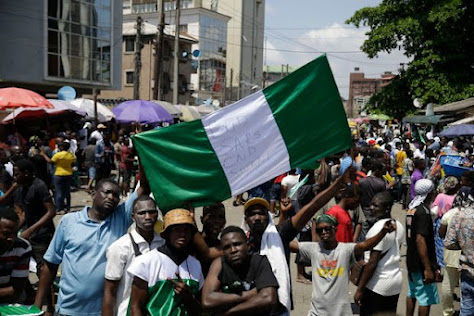By
Ochereome Nnanna
PRESIDENT
Muhammadu Buhari owes us apologies for the latest hike from N86.50k to
N145 of the official pump price for Premium Motor Spirit (PMS) announced on
Thursday last week by his Deputy Minister of Petroleum, Dr. Emmanuel Kachikwu.
First, he must apologise
to Nigerians, on behalf of himself, his political party, the All Progressives
Congress, APC, his foremost apologist, Professor Tam David-West, Labour and the
hired “civil society” groups who truncated the deregulation of the downstream
sector of the petroleum industry in January 2012. Second, he must also
apologise to his predecessor, ex-President Goodluck Jonathan, who lost his
post-electoral “honeymoon” period early in 2012 when he stuck out his neck in
an attempt to lay to rest, once and for all, the bogey of fuel scarcity and its
attendant high cost and human suffering which have trailed the nation for
nearly thirty years.
After maligning the
Otuoke-born lecturer, he went back to implement a policy that Jonathan would
have carried out four years ago if not for irresponsible and unpatriotic
opposition. Whenever the deregulation of this sector is contemplated, people
always say the timing is wrong without telling us when the timing will ever be
right. Certainly, the timing for this steep hike is wrong. It comes so soon
after the equally steep hike in the cost of electricity tariffs which the
Federal Government through its Power, Works and Housing Minister, Babatunde
Fashola, openly approves of.
It comes at a time
when thousands of people are losing their jobs and most employers cannot pay
the salaries of their workers because of the parlous economic situation brought
about by low oil prices, the crash in the value of the naira and the inability
of the Buhari administration to tackle them. To top it all, Labour is priming
for a new national minimum wage of between N56,000 to N90,000. Now that the
official price of petrol has been nearly doubled, who knows the amount that
Labour will now ask for? If ever there was a right time for the deregulation of
the downstream sector, the year 2012 was it. We had just emerged unscathed from
the worldwide economic meltdown of 2008/2009. By 2012 our Brent crude was
selling for $114.26 per barrel, a trend that was generally sustained until
toward the end of 2014 when the tide of transitional political was in full
swing.
Unlike now when
economic activities are low, poverty rate is higher than ever and most
investors have fled, there was money in the system then. The economy was even
becoming increasingly “dollarised” as a result of oil-fed liquidity in the
system. In fact, it was shortly after this that a review of the nation’s Gross
Domestic Product terms showed that Nigeria had emerged as the largest economy
in Africa and the continent’s number one investors’ destination. Nigeria could have weathered the shock of
deregulation much more easily than now. But the opposition would have none of
it. Labour unions went on strike.





